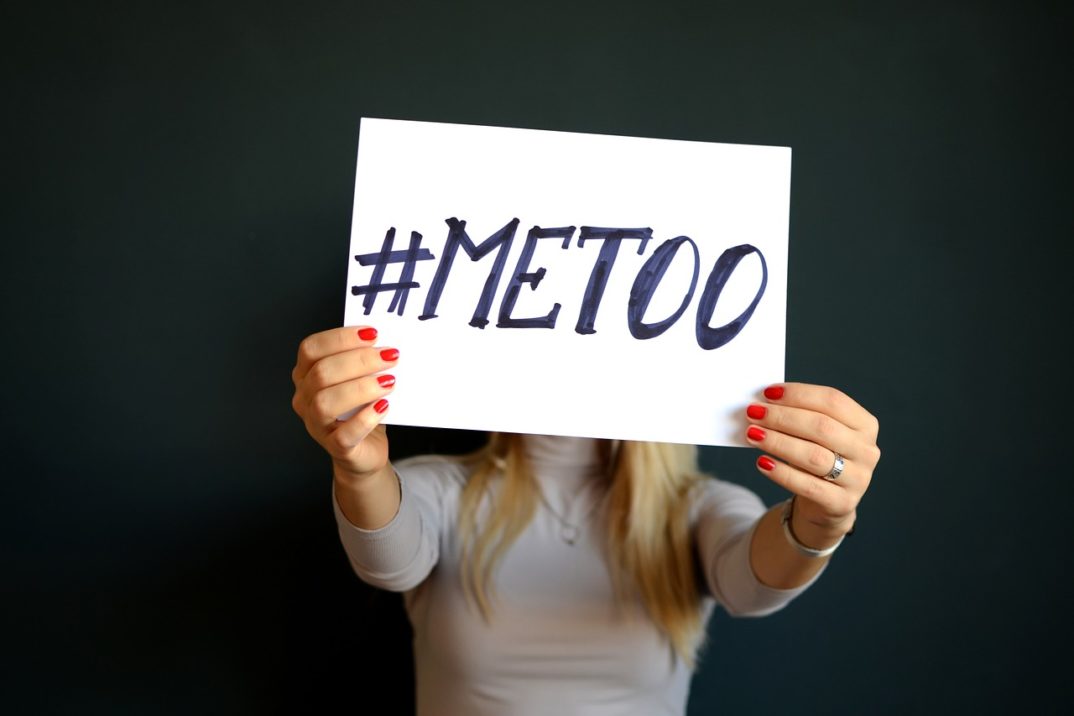Trusting Women and Epistemic Justice
This article has a set of discussion questions tailored for classroom use. Click here to download them. To see a full list of articles with discussion questions and other resources, visit our “Educational Resources” page.
Over the past three months, public figures have been exposed as serial sexual harassers and perpetrators of sexual assault. Survivors of harassment and assault have raised new awareness of toxic masculinity and its effects in a short period of time.
However, as time goes on, supporters of the movement have been voicing rising concerns that something is bound to go awry. There is an undercurrent of worry that an untrustworthy individual will make an errant claim and thereby provide fodder for skeptics and bring the momentum of the movement to a halt. In response to this, it may seem like more vetting or investigation of the claims is the way forward. On the other hand, wouldn’t it be unfortunate to erode trust and belief in women’s stories in hopes of keeping the very momentum in service of hearing women’s voices?
At work behind both the rise of the movement and the responding concerns is one question: What does it mean to trust women?
There is, of course, a discussion to be had over norms of behavior and consent and just (versus unjust) sexual practices. Important questions remain to be addressed in the wake of recent communication, including the morality of particular actions and the principles that describe the appropriate behaviors. The question about trusting women goes to another level. Beyond questions at the level of the behavioral wrongs is how we have listened and believed one another about immoral behaviors. Why is trusting women an issue in our public discourse?
When the message that people are fighting to put forward is to believe what someone says, it is frequently against a historical background of dismissiveness and doubt. The question, therefore, addresses the behaviors of individuals and society in terms of how we are doubting and trusting one another–issues in the philosophical discipline of epistemology.
Epistemology is the study of knowledge and standards for justification for our beliefs. Each of us has a rich epistemic life: we have varieties of sources for our knowledge, such as perception, reasoning and logic, and the testimony of others. Consider, for instance, how much of what you know is a result of a conversation with someone, or was derived from something you read, heard, or saw in some media source. Because we have such varied sources, we also have principles and heuristics for how to sift through it all and how to rely on the credibility of the different sources depending on the context and need. For example, if I am idly curious about the geography of Germany, I may put credence on my neighbor’s guess and move on, but if I am purchasing a plane ticket, I would look for a source that I had secure confidence in–the standards I hold my source to regarding their credibility would rise.
In discussions of epistemic justice, we are concerned with the treatment of “epistemic agents” – people who know things. Because we live in a society full of prejudicial views about people, this unsurprisingly extends to prejudicial views about people’s reliabilities as knowers. As a result, in our communities some groups experience credibility deficits: they are perceived to be less credible sources of information, even about their own lives and experiences.
Consider an example from the Netflix original television show, Master of None: a group of two men and two women sit at a booth at a bar, and an acquaintance introduces himself to the men and leaves without addressing the women. After he leaves, the women mention how irritating it is when men neglect to address the women in a group. Interpreting this case at the level of the ethics of the man’s behavior isn’t very controversial: neglecting people on the basis of gender would be inappropriate.
Whether that was actually what this man was doing is a matter of debate – the women were seated in the corner, and there may have been a non-gender-based explanation for his behavior. However, when the women voiced their irritation, the men dismissed their reports of their experience, with a default of doubt for there being a phenomenon of men neglecting to address women and a baseline of lack of credence that this could have been what happened in their current situation. It is this lack of credence that led to an argument between the members of the party.
An illuminating case from Professor Miranda Fricker highlights the treatment of Marge Sherwood from The Talented Mr. Ripley. When she attempts to voice her concern about Tom Ripley, she is met with dismissive silencing from the father of her now-dead fiancé: “Marge, there’s female intuition, and then there’s facts.” In virtue of her gender, what she has to say is taken to be less reliable. The stereotype of women as irrational and highly emotive is playing into how Marge Sherwood is perceived as an epistemic agent: she is treated as less credible as a knower, and instead is seen as a source of “female intuition.”
Gender is not the only dimension of identity that diminishes someone’s epistemic standing. Social and economic class can also play a real role in privileging speech, as can ethnicity and race. For instance, Professor Kristie Dotson discusses the negative stereotyping of black women that directly affects the perception of their credibility as people who know things (epistemic agents); our society is inundated with a pernicious controlling narrative of black women that “facilitates a recurring failure” of audiences to take black women seriously as epistemic agents, resulting in an epistemic harm Dotson calls “quieting.”
Considering the epistemic stereotypes and potential prejudices that could be brought to the interaction between individuals attempting to communicate helps to disentangle the concerns in the discussion about trusting women. It should be clear that women have been prejudicially dismissed when reporting their sexual mistreatment. Women have faced a credibility deficit–in our society, people treat their testimony with a default lower credence. To right this epistemic prejudice would involve effortful righting of the default of doubt that meets those in our society who face such epistemic prejudices. Consider: Only nine percent of Trump voters believed the sexual misconduct accusations against Roy Moore.
The moral of the story is often more complicated than simply “trust women,” if by that we mean, “believing the content of what women say unreflectively.” Historically, white women have been believed when their voices are raised in ways that fit with a narrative of stereotypes that oppress racial and ethnic minorities. Consider the power dynamics involved in the death of Emmett Till: when a white woman claimed that a black man behaved in a sexually inappropriate manner towards her, a community was complicit in his murder.
The different identities and power structures at play in our community inform not just the ethics of our behaviors, but also who we believe–the credibility we award individuals as knowers. Thinking about these issues in terms of the prejudicial and harmful ideas that our society works with and the patterns of oppression at work in our interactions, including our epistemic interactions, can help to make sense of the dynamics involved in the #MeToo movement and the reactions to it.





